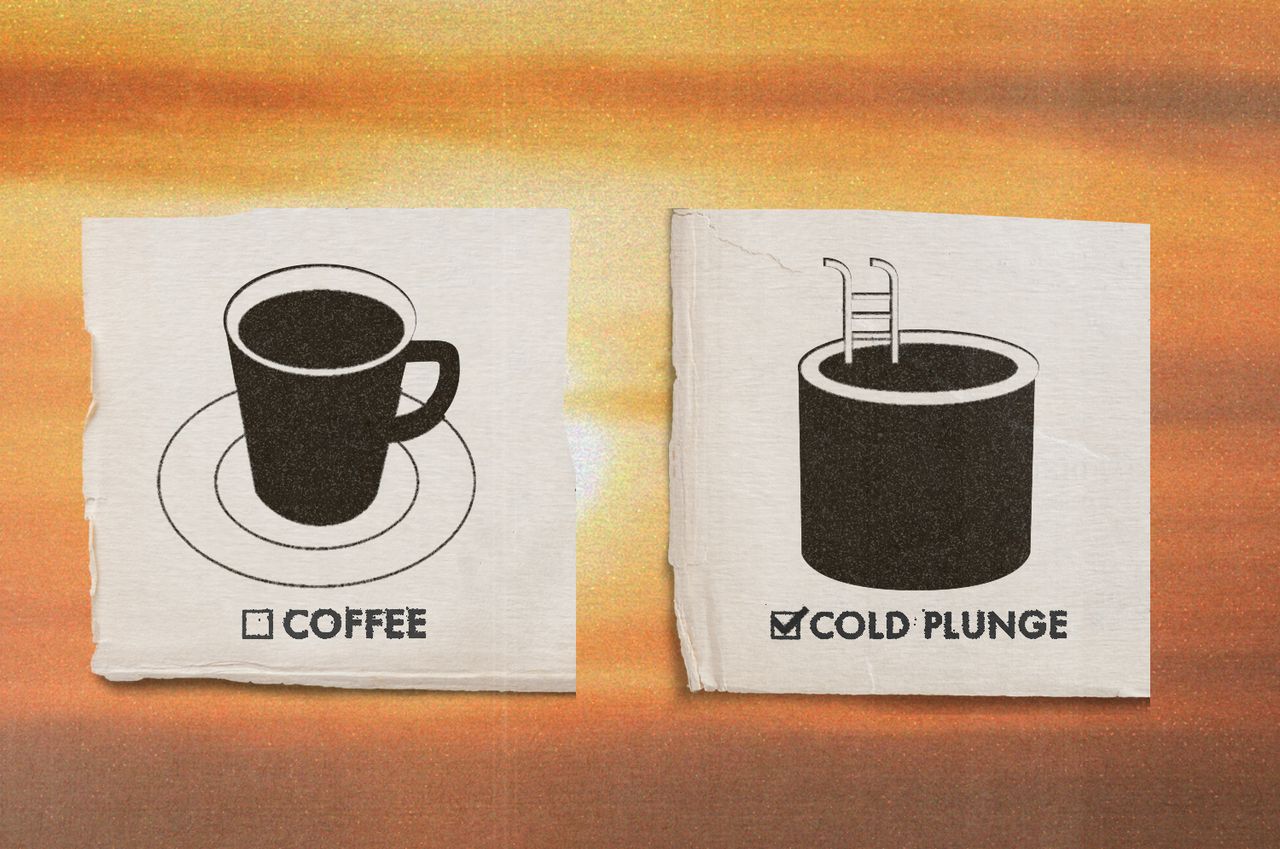A person’s cafe order can be a kind of personality cipher. Black-coffee devotees are hard-core. A single espresso evokes sophistication. Then there are those who don’t drink coffee at all.
Superhuman? Alien?
Or maybe they just know something we don’t. These days, more and more public figures are proudly proclaiming that they don’t touch the stuff—and say they’re more productive as a result. Supermodel Gisele Bündchen starts her mornings with room-temperature water with a bit of lemon and Celtic salt. NBA star Giannis Antetokounmpo opts for a smoothie. Actor Sydney Sweeney said she’s never tried coffee. Investor and television personality Mark Cuban drinks decaf in lieu of the hard-hitting variety.
“I think sleep is the new coffee,” said Bryan Johnson, founder of payments platform Braintree Venmo and nutrition program Blueprint, who has been working on ways to slow and reverse aging. “New social norms are emerging.” Instead of turning to caffeine when dealing with jet lag recently, he did cryotherapy for three minutes.
Amid a wellness boom, people are finding ways to liven up without the anxiety and crashes that can come with a cup of brew.
Li Haslett Chen, founder and CEO of the social commerce marketplace Howl, gave up coffee three months ago. Though she used to drink a cappuccino in the morning, and black java in the afternoon, it started to make her jittery and more tired. Her quitting symptoms? “Just grumpiness.”
“I’m not puritanical about it,” she said. “For me, it’s about listening to what my body wants. Sometimes that’s a whole-milk cappuccino, but most of the time, it’s too much caffeine.” In the mornings, she now drinks samahan, a Sri Lankan ayurvedic tea she discovered at a spa in Kyoto.
After growing up drinking tea in China, Haslett Chen moved to the U.S., where she discovered coffee was a social phenomenon. Now, she said, “that culture is changing.”
Quitting perks
Coffee has been jolting us into consciousness before alarm clocks even existed, but we’ve gone through many phases over the decades, such as plopping butter into our mugs , rattling off orders that could double as tongue twisters , or third-wave coffee , which emphasized high quality and carefully sourced beans and potentially enough time for a nap while the pour-over is being completed. The common denominator for all these—coffee.
“One of the most off-putting things about me is that I don’t drink coffee,” actor and producer Mindy Kaling told The Wall Street Journal last year. “I love the ritual of it and I love beautiful cappuccino art, so I really do feel excluded from a big part of culture. I think people are suspicious of it, and I would be, too.”
Camiel Irving, a vice president at Uber, finds that when she tells people she doesn’t drink coffee, most reactions are a mix of surprise and envy. Some, she said, will ask, “How do you survive?”
Irving said that as she got older, coffee started to disrupt her slumber more. She now sleeps better, works out more consistently and eats healthier. She drinks only water in the morning.
Steven Spielberg has said he’s never had coffee in his life. Asked to verify that’s still true, a representative for the filmmaker said, “Steven can’t answer this question at this time due to a lack of caffeine in his system.”
Since chain Blank Street Coffee introduced a matcha menu this spring, those green-tea drinks have become its fastest-growing category. Non-coffee sales had already been rising, according to a company representative.
Last year on his social-media site Threads, Meta founder and CEO Mark Zuckerberg shared that his daily caffeine intake is “none ,” and that his routine consists of mixed martial arts training, eating a ton of protein and sleeping for seven to eight hours per night.
“I’m not a coffee drinker. It just does something to me,” actor and artist Julia Fox said in a Journal interview this spring. “It goes right into the core of my brain, and then I’m wired.”
Beyond brew
For a time, Graham Weaver, founder of private-equity firm Alpine Investors, would carry around a backpack with bottles of Diet Coke so he could grab one as soon as he started crashing. He tried and failed several times to quit drinking coffee before he finally did it.
Now, he said, “throughout the day, if I start to find my energy waning, I’ll drink water, I’ll walk around, I’ll take a short little nap.”
Caffeine has been linked to physical benefits, including adding oomph to workouts and possibly helping to prevent diseases including Alzheimer’s and diabetes. Non-coffee drinkers are fine with the potential trade-offs.
When Shane Heath first quit drinking coffee, he felt like an anomaly. “It was very much a ‘But first, coffee’ culture,” he said, noting some people wore shirts bearing the slogan. He was working in the tech industry, feeling anxious and not sleeping well despite what he described as a healthy lifestyle. “I bought into the hustle culture, sleep-when-you’re-dead mentality. I found myself drinking tons of caffeine while I was at work.”
Replacing his morning coffee with a homemade blend including cacao, chai, spices and mushrooms led Heath to start a company, Mud/Wtr, in 2018 and sell his mushroom-based drink powders. Some of the mixes have a small amount of caffeine. Mud/Wtr recently opened its first non-coffee cafe in Santa Monica, Calif., which offers smoothies and elixirs alongside yoga and breathwork classes and cold plunge parties.
“For a while the flex was, how little did you sleep? How much did you do?” said Heath. “Now the pendulum is swinging the other way: How much are you taking care of yourself? Do you feel energized? Do you feel full of vitality?”
Write to Lane Florsheim at lane.florsheim@wsj.com



